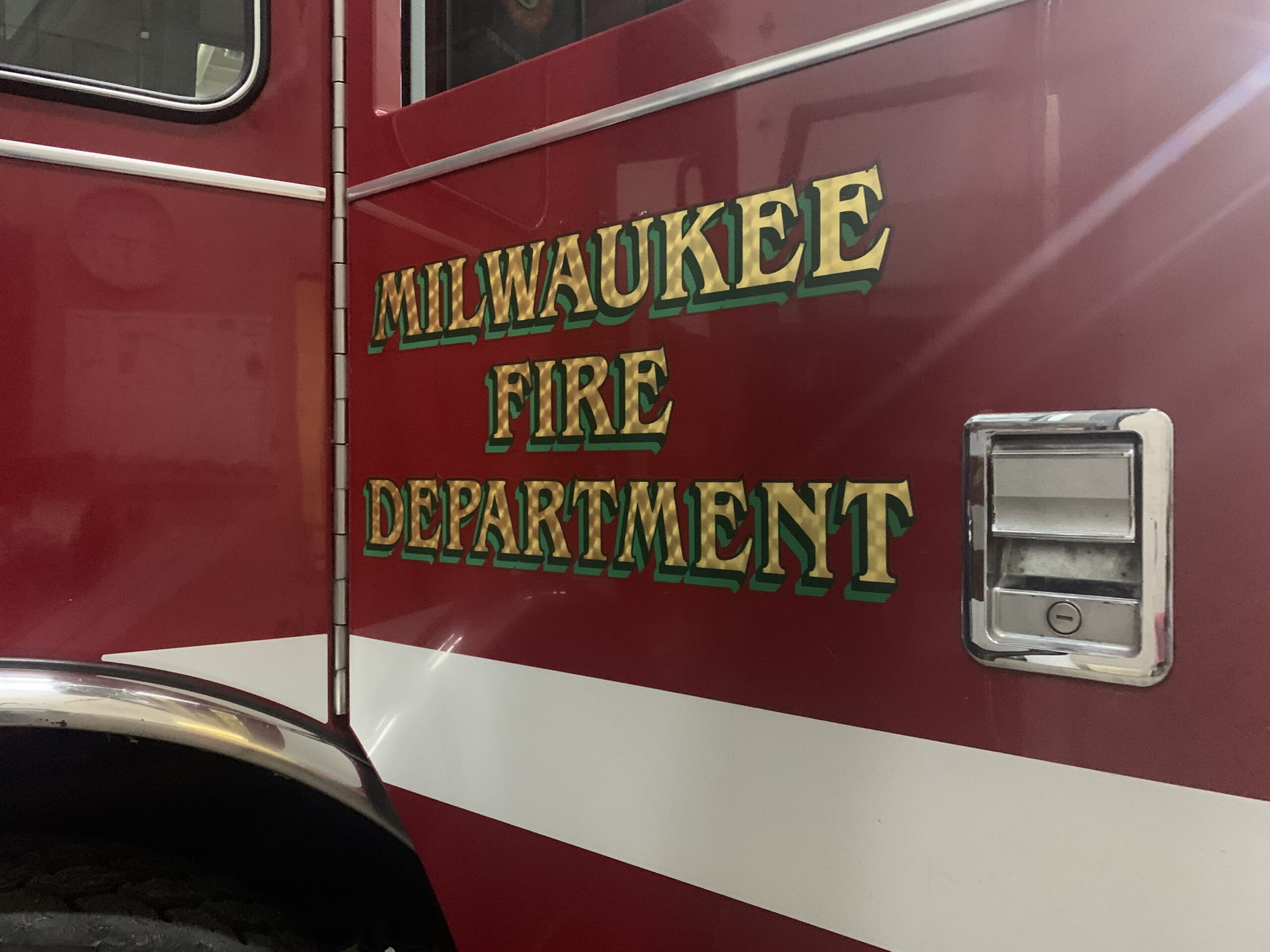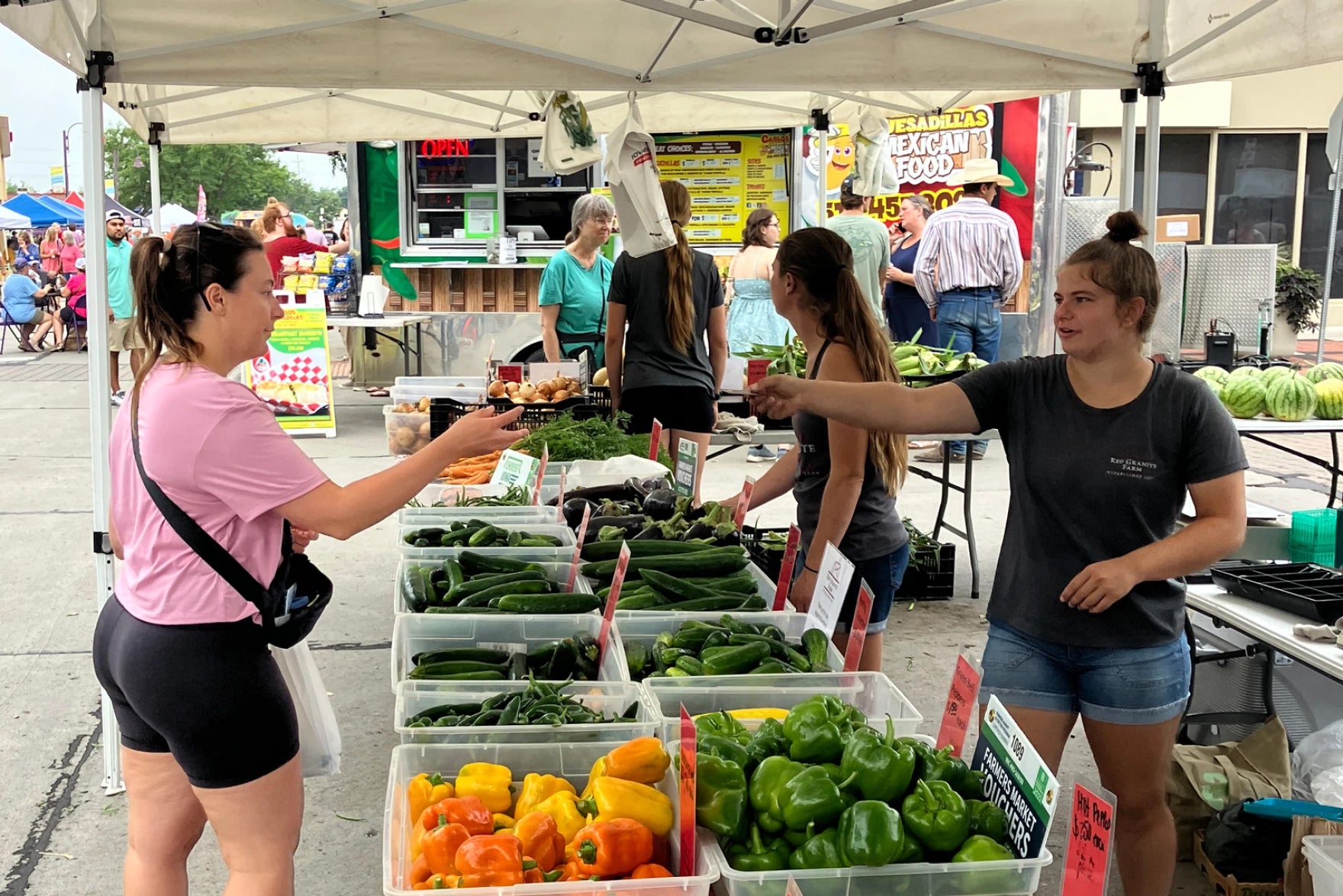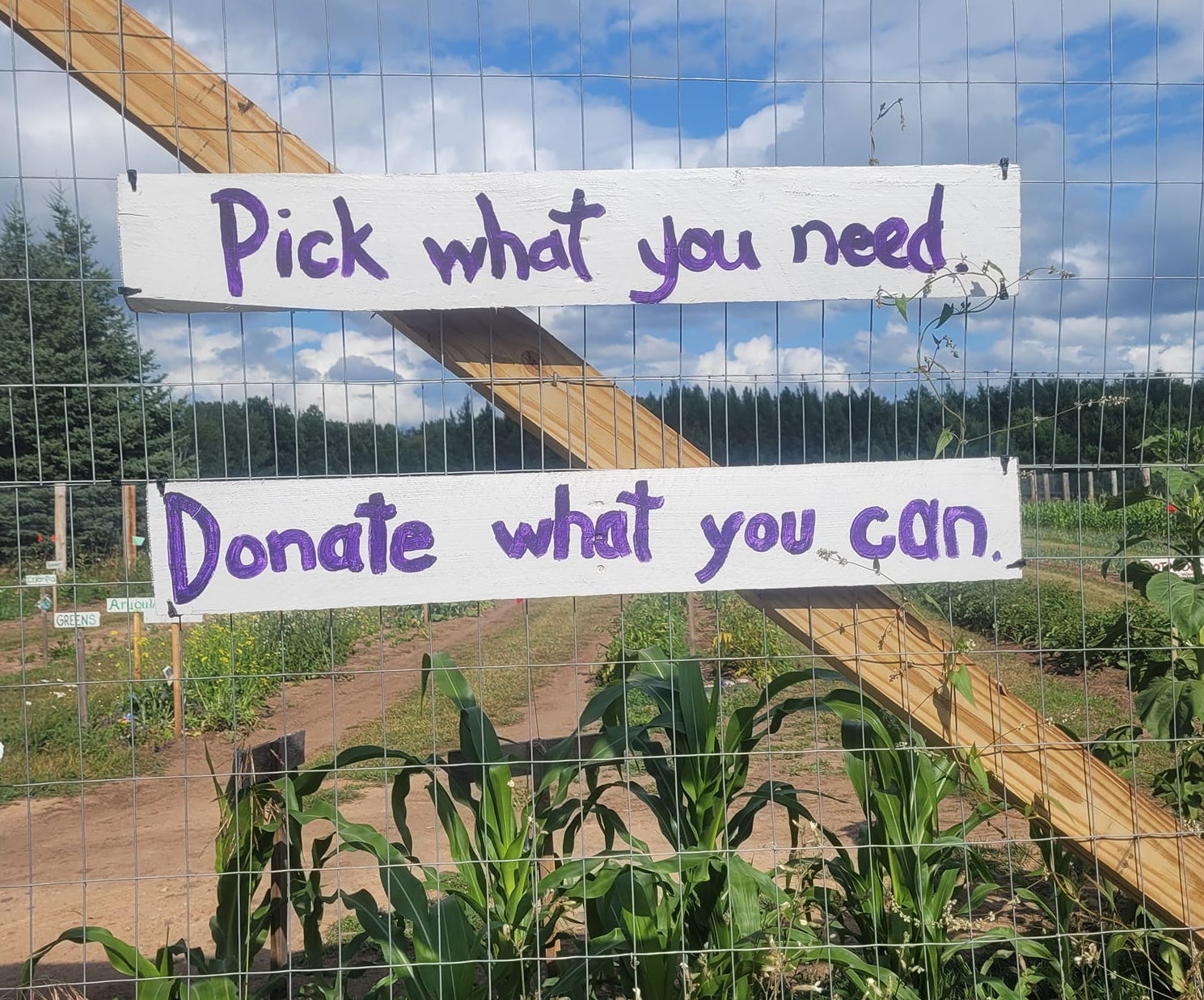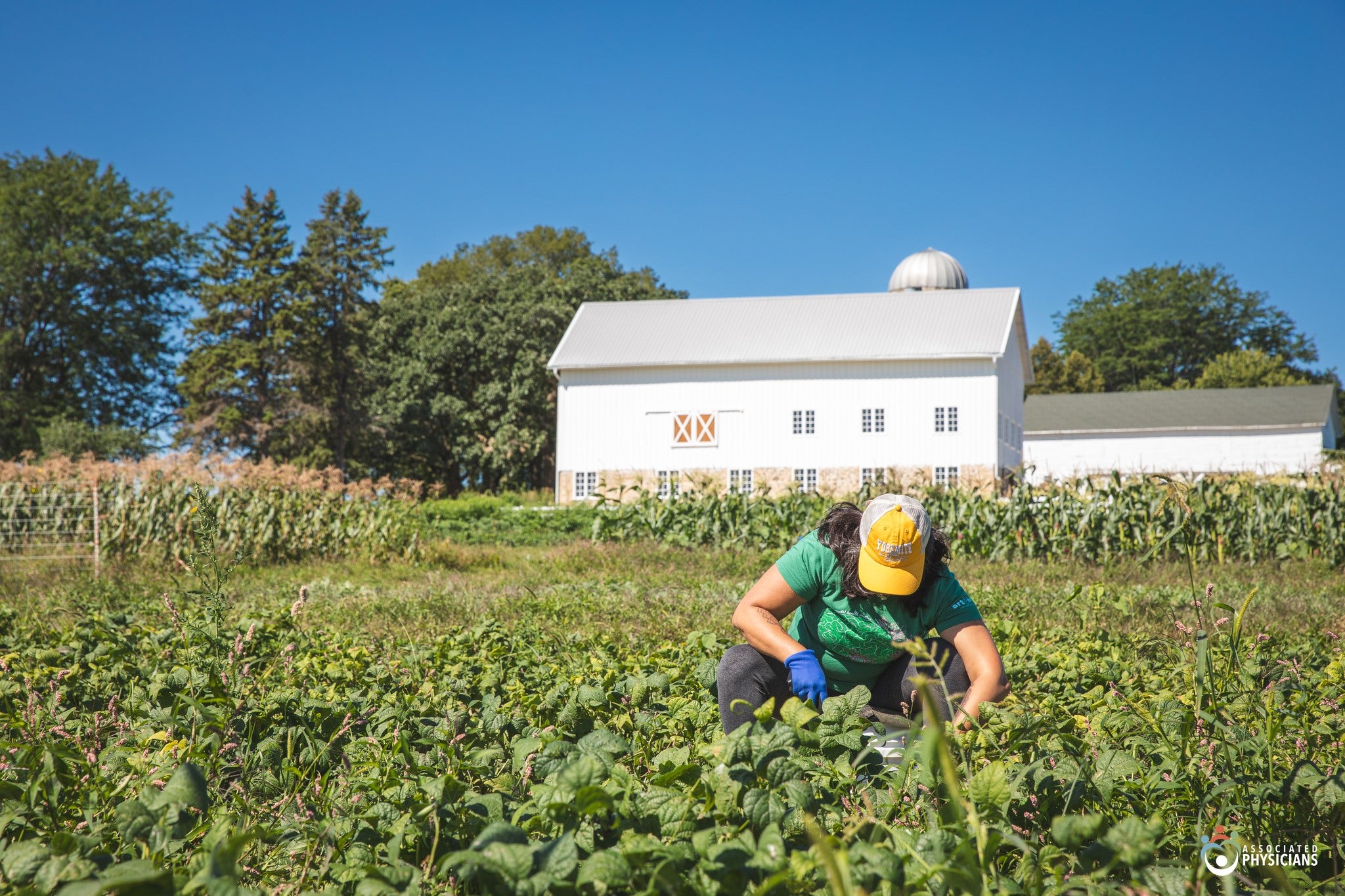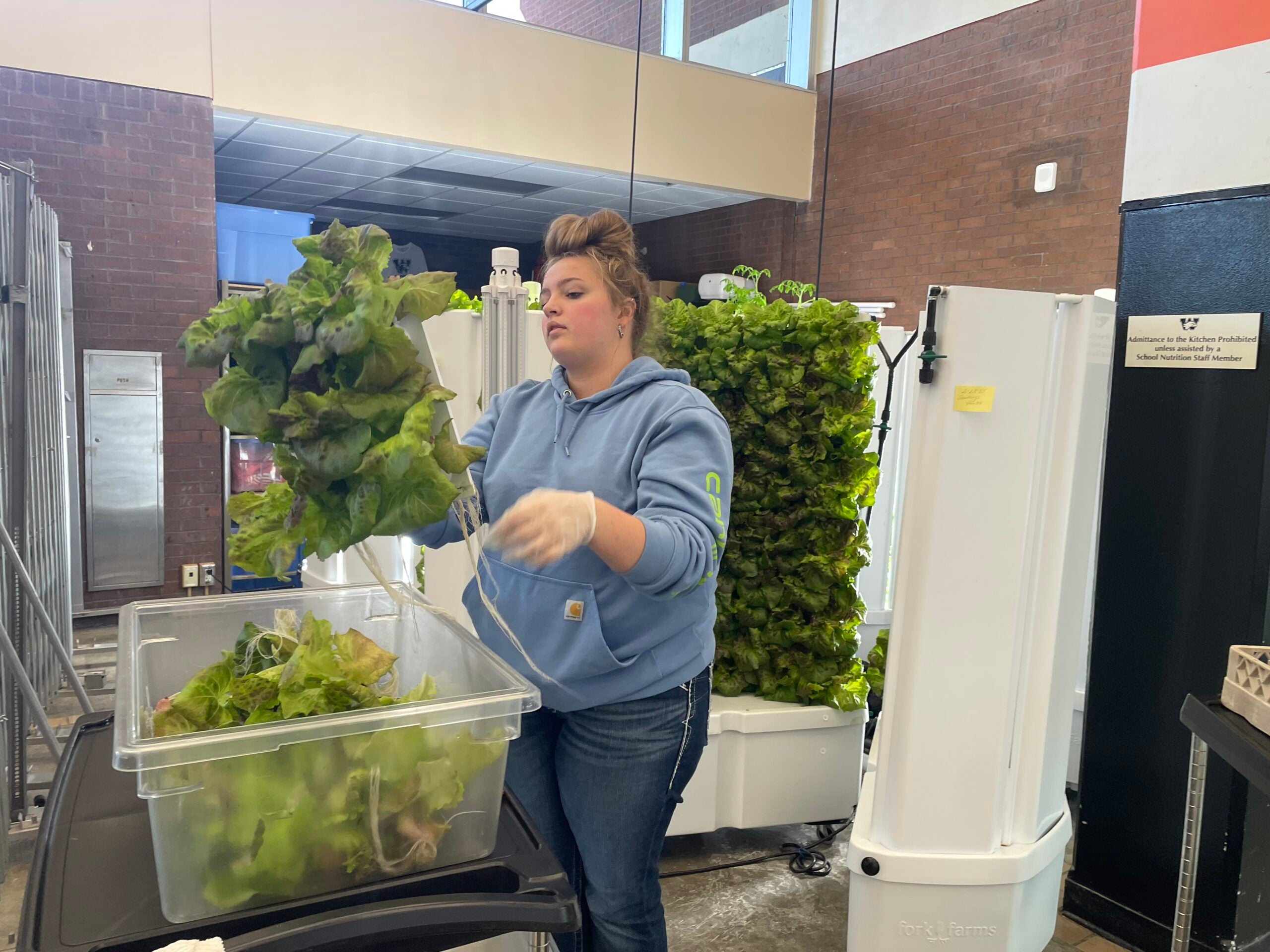An unconventional partnership between firefighters and farms hopes to bring fresh produce to food deserts in Milwaukee.
The Gardens for First Responders program has had a vegetable garden at one Milwaukee Fire Department station for about two years. Now, the program is adding a hydroponic vertical garden at Fire Station #5 to grow fresh produce year round.
Leafy greens and fresh herbs grown in four cylindrical towers will feed families in the neighborhood. The fire department launched the initiative along with Community Agricultural Growing Experiences, or CAGE, and the hydroponic gardening systems company Fork Farms to combat food insecurity.
News with a little more humanity
WPR’s “Wisconsin Today” newsletter keeps you connected to the state you love without feeling overwhelmed. No paywall. No agenda. No corporate filter.
Food insecurity is a way to describe people who lack access to fresh food, and in extreme cases, have to eat less food to make ends meet. Barriers to food can include distance from a healthy grocery store, money to buy fresh food and insufficient equipment to prepare or store produce.
Andre’ Lee Ellis is the founder of CAGE. He wanted to do his part in solving food insecurity.
“I knew that our community needed growth. I knew that we had food deserts and I knew that the people on the bottom needed to eat better,” Ellis said.
Two years ago, he planted a garden next to the non-operational fire house with the support of Milwaukee Fire Chief Aaron Lipske. Now there are four growing towers in the firehouse. Together, the towers are expected to grow 100 pounds of food each month. That’s in addition to the traditional garden next door.
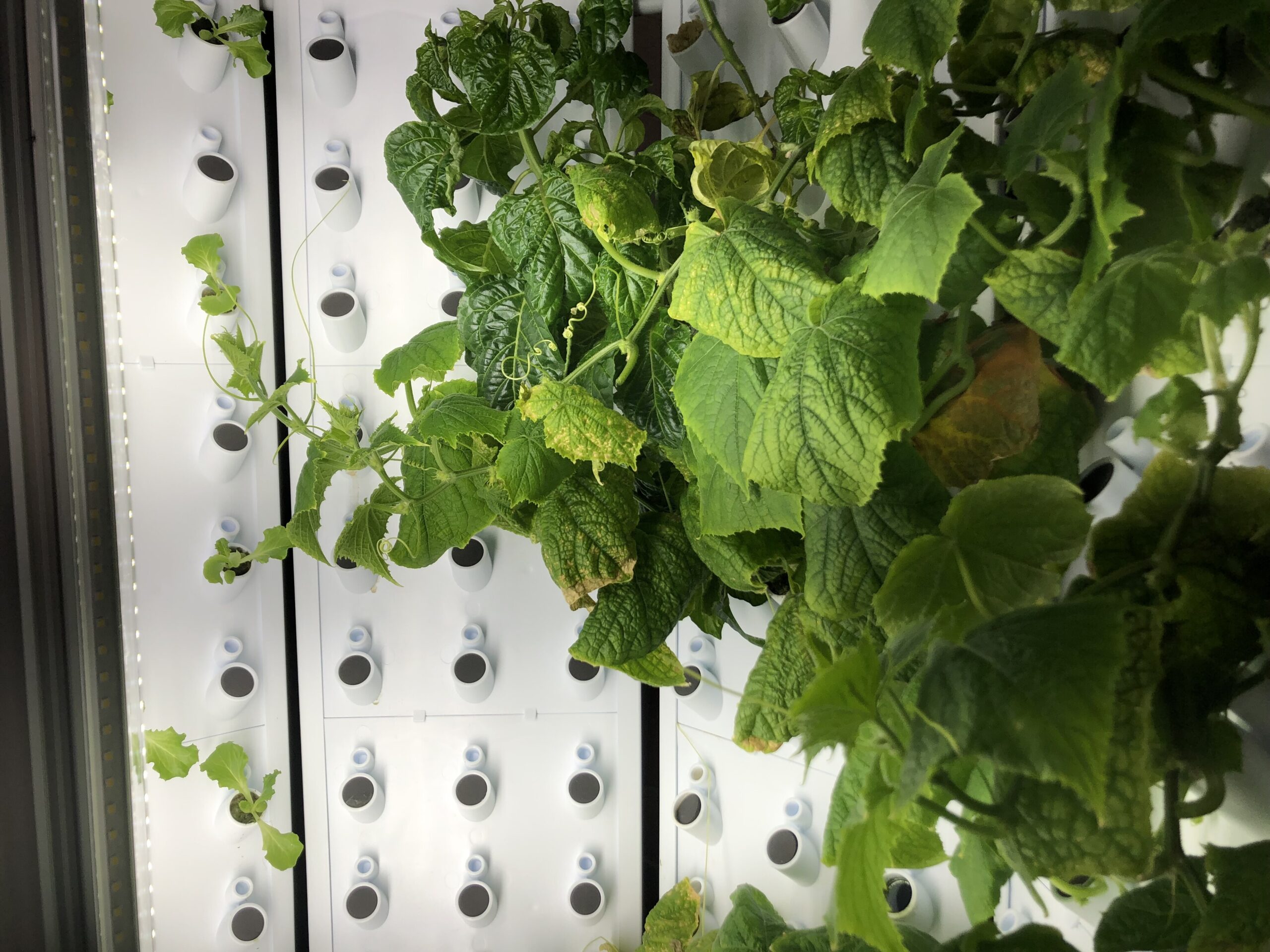
Both gardens are maintained by CAGE, which also trains Milwaukee youth to work in the gardens.
The project, funded by a grant from Bader Philanthropies, aims to add vertical farms to four more fire stations within the next two years.
Jace Perry is a 16-year-old high school student who has been gardening at the firehouse six days a week for a year. Perry said working with people like Ellis has taught him the benefits of working in a garden. And, he said, it’s peaceful.
“You hear birds chirping, flowers blooming, stuff like that. It’s also so nice to hear if you are stressed out or anything like that,” Perry said.
Many areas of Milwaukee are food deserts — meaning residents do not live within walking distance of a grocery store. According to a report by the city, grocery stores are disappearing from Milwaukee. Big name grocery stores are reluctant to build grocery stores in low income areas where the need is greater. Instead, those areas are often served by convenience and corner stores, only half of which carry fresh produce.
Lipske said he has an obligation to not only keep people safe from fires but also keep them healthy. The location of the vertical farms is strategic — where there isn’t a grocery store, there may be a fire station.
“There are huge swaths of our city that encompass many of our vibrant communities that don’t have access to healthy leafy greens, produce,” Lipske said.
In 2019, Milwaukee established a six-pronged approach to tackling food insecurity in the city. The Department of City Development said in a statement that the city has made “great progress” toward accomplishing the 26 goals outlined in the report. A Fresh Food Access fund has been successful in bringing healthy food to underserved communities.
The Gardens for First Responders is hyper local, with food grown by and distributed to neighbors. Anyone is welcome to pick their own food from the garden. Otherwise, harvested produce is sent home with teenagers who grew it, as well as the firefighters who act as mentors. Excess food will be given out door-to-door. CAGE also wants to host community potlucks using the food from the garden.
Michael Hostad is the executive vice president of social innovation at Fork Farms. The company, based in Green Bay, manufactures and distributes the vertical growing towers that are being used at the fire station.
“We believe everyone is a farmer. That is why we spend all of our time developing technology that makes growing fresh food accessible,” Hostad said.
Fork Farms hopes this partnership will make fresh food available to people who live in the neighborhood, teach the teenagers to farm so they can develop employable skills, and to foster relationships between community members and first responders.
“We know that change happens at the speed of trust in our communities,” Hostad said.
Ellis shares the same goals. He said he has created a safe space, “where young Black boys can come and hone their skills for growing” — not just growing food but also growing skills like work ethics and timeliness.
Ellis hopes growing those skills will also help combat gun violence plaguing young people in the city.
“As long as they have their hands in the soil, they can keep them off the trigger of a gun,” Ellis said.
Lipske said while the partnership seems unconventional, he wants to give it a try.
“Let’s bridge that bridge. Let’s tie those things together,” Lipske said.
Wisconsin Public Radio, © Copyright 2025, Board of Regents of the University of Wisconsin System and Wisconsin Educational Communications Board.

